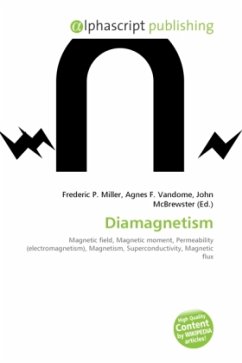
The Dipole Radiation
Retarded Potentials and Maxwell Equations
Versandkostenfrei!
Versandfertig in 6-10 Tagen
14,99 €
inkl. MwSt.

PAYBACK Punkte
7 °P sammeln!
The theory of physical phenomena called "the dipole radiation" is full of surprises. The book starts with one of them. Let a particle does not produce any electric or magnetic field due to lack of charge and dipole moment, but at some moment of time $t=0$, it polarizes and since this moment on, produces a stationary dipole field. Due to the causality principle, the filed is cut at the distance $ct$. Then its lines of force have endpoints which signify presence of electric charge. On one hand, this picture follows straightforwardly from the theory of retarded potentials, on the other hand, thes...
The theory of physical phenomena called "the dipole radiation" is full of surprises. The book starts with one of them. Let a particle does not produce any electric or magnetic field due to lack of charge and dipole moment, but at some moment of time $t=0$, it polarizes and since this moment on, produces a stationary dipole field. Due to the causality principle, the filed is cut at the distance $ct$. Then its lines of force have endpoints which signify presence of electric charge. On one hand, this picture follows straightforwardly from the theory of retarded potentials, on the other hand, these considerations are apparently broken, because polarization of a particle does not create electric charges running away with speed of light. In this book two possible modifications of the method of retarded potentials are considered and, after their failure, Maxwell equations are solved as they stand. Comparison of retarded potentials with exact solutions of the Maxwell equations discloses further surprises.












